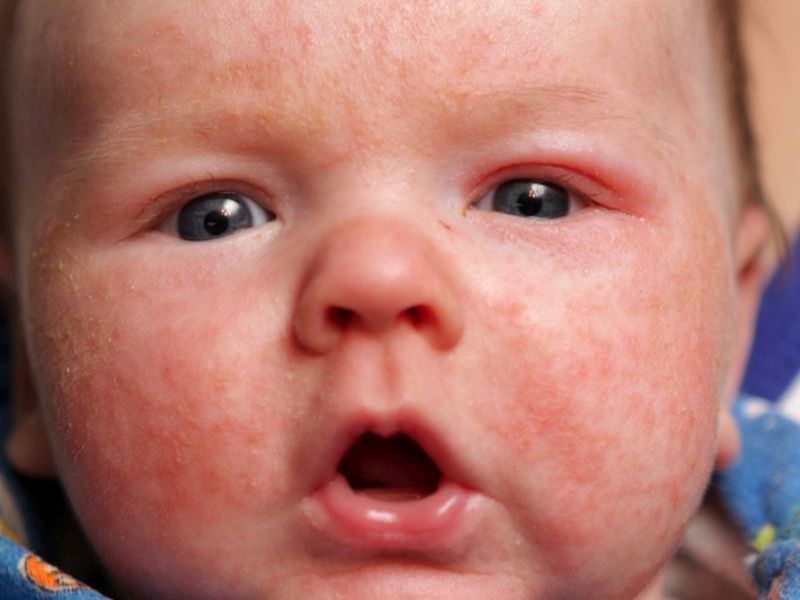What You Need to Know When Your Child Gets a Rash
Most clear up on their own or are easily treated, but some are contagious -- even dangerous
HealthDay Reporter

FRIDAY, Nov. 6, 2015 (HealthDay News) -- When children develop a rash, parents might think it's simply due to a skin irritation. But viruses are also a common cause of rashes in children, an expert says.
"Causes of rashes vary immensely and it can be difficult for parents to know if they should be concerned," Dr. Heidi Renner, a pediatrician at Loyola Medicine and assistant professor at Loyola University Chicago Stritch School of Medicine, said in a university news release.
"Rashes can be caused by anything from an allergic reaction to viral illness to something more serious," she explained.
"Most childhood rashes are no cause for concern, but it's always best to talk to your pediatrician," Renner added.
In most cases, childhood rashes get better on their own or are easily treated. But rashes can be a symptom of another illness or virus, and a child with a rash should be seen by a doctor, Renner said.
Common viruses that can cause rashes include roseola, chickenpox and measles. These rashes are highly contagious, and children with a rash and high fever should not be around other kids. Thorough hand-washing is also critical to preventing transmission of the virus to others, according to the news release.
Contact your doctor if your child also has symptoms of dehydration, including low fluid intake, dry lips and decreased urination, because "this scenario may indicate a more serious illness and the child should be evaluated by a pediatrician," Renner said.
Rashes come in many forms -- including flat red areas, raised bumps, welts, blisters or combinations -- and can last from a couple of days to several weeks.
If a child has a fever and a rash that is bright red or purple with spots or bruises that don't turn white when you press on them, seek immediate medical help. These could be signs of a meningococcal infection, which can cause lifelong disability or death, Renner said.
More information
The American Academy of Pediatrics has more about rashes and skin conditions.
SOURCES: SOURCE: Loyola University Health System, news release, Oct. 29, 2015
Last Updated: Monday, November 9, 2015 8:37:41 AM EST
Copyright © 2015 HealthDay. All rights reserved.